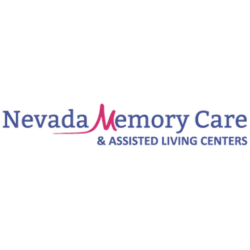Choosing the right care for yourself or a loved one can be a difficult task, especially with innumerable options available. Assisted living emerges as a favorite option for seniors who want a balance between getting support and maintaining their freedom. It is necessary to understand how aided life is different from other care options, such as living independently, nursing homes, and memory care. Each of these options meets different needs and lifestyles, and the greed of these nuances will be empowered to make more informed decisions.
Assisted Living: A Balance of Support and Independence
It is designed for seniors who require help with daily activities but do not require intensive care provided in nursing homes. Residents in aided communities usually get assistance with tasks such as bathing, dressing, drug management, and food preparation. Assisted Living Facility in Nevada also provides housekeeping, laundry services, and transport, allowing residents to focus on enjoying their lives. One of the main features of assisted dwelling facilities in Nevada is the emphasis on freedom. Residents often live in private apartments or suites, which gives them freedom to personalize their location and maintain a sense of autonomy.
Independent Living: For Active, Self-Sufficient Seniors
Independent life is ideal for seniors who are still active and self -sufficient, but want to live in a community setting with peers. These communities, often referred to as retirement communities or 55+ communities, provide maintenance-free lives with features such as fitness centers, food options, and social activities. Unlike assisted living, Independent Living does not offer personal care services or medical aid. Independent residents generally live in private homes, apartments, or condominium and are responsible for their daily activities. This option is best suited to those superiors who are healthy, mobile, and are able to manage their care, but want to enjoy and enjoy a more social lifestyle.
Nursing Homes: Comprehensive Medical Care
The nursing home, also known as efficient nursing features, provides a higher level of medical care than aided life. These features are designed for individuals who require round-the-clock supervision and assistance due to recovery from chronic diseases, disability, or surgery. The nursing home has licensed medical professionals on employees, including nurses and doctors, to provide special care such as wound care, physical therapy, and drug administration. Unlike aided houses, where residents live in private apartments, residents of nursing homes often share rooms and have limited personal spaces. In the nursing home, meditation is on medical care rather than freedom or social activities, although many features offer recreational programs.
Memory Care: Specialized Support for Cognitive Conditions
Memory care is a special type of care for individuals with Alzheimer’s disease, dementia or other cognitive loss. These features are often part of supporting housing communities or nursing homes, but are employed employees and safe environment to meet the unique needs of residents with memory issues. Memory care programs are designed to provide a structured routine, reduce confusion, and promote a sense of safety and well -being. Employees in memory care for dementia in Nevada units are trained to handle challenges associated with cognitive decline, such as wandering, movement and communication difficulties. Activities are ready to encourage memory and cognitive function, often include music, art and sensory experiences.
In-Home Care: Personalized Assistance at Home
In-home care allows seniors to receive assistance while remaining in their homes. Cares, often referred to as home health colleagues or individual care assistants, provide services such as food preparations, housekeeping, transport, and personal care. In-home care can be sewn to meet the specific requirements of the individual, from a few hours a week to round-the-clock support. One of the main benefits of in-home care is the ability to live in a familiar environment, which can relax superiors. However, it may not be suitable for those who require extensive medical care or socialization opportunities.
Respite Care: Temporary Support for Caregivers
Respite care provides short-term relief for primary care, allowing them to take a break, while their loved ones receive care in a safe environment. This type of care can be provided in assisted living through Nevada, Nursing Homes, or in-Hum Care Services. Relief care is ideal for families who require temporary assistance due to travel, illness, or other commitments.
Correct Option
It is necessary to understand the difference between aided housing and other types of care for the right decision. Considering factors include necessary help, medical requirements, social priorities, and budget. Touring features, speaking with employees, and consultation with healthcare professionals can provide valuable insight into your requirements to be the most suitable option for your needs.
Conclusion
Assisted living provides a unique mixture of support and freedom, making it an excellent option for seniors who require help with daily activities but want to maintain an active lifestyle. However, it is important to identify how it differs from other types of care, such as living, nursing homes, memory care, and in-home care. Each option provides a specific purpose and meets different needs, so taking time to detect your options will ensure that you or your loved one receives the best possible care. Understanding these distinctions, you can make an informed decision that promotes health, happiness, and quality of life.
